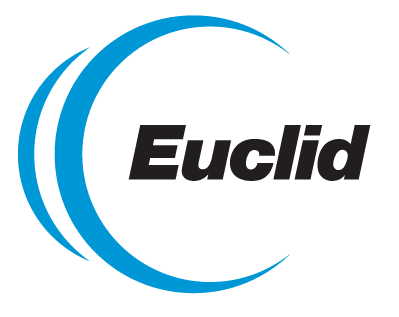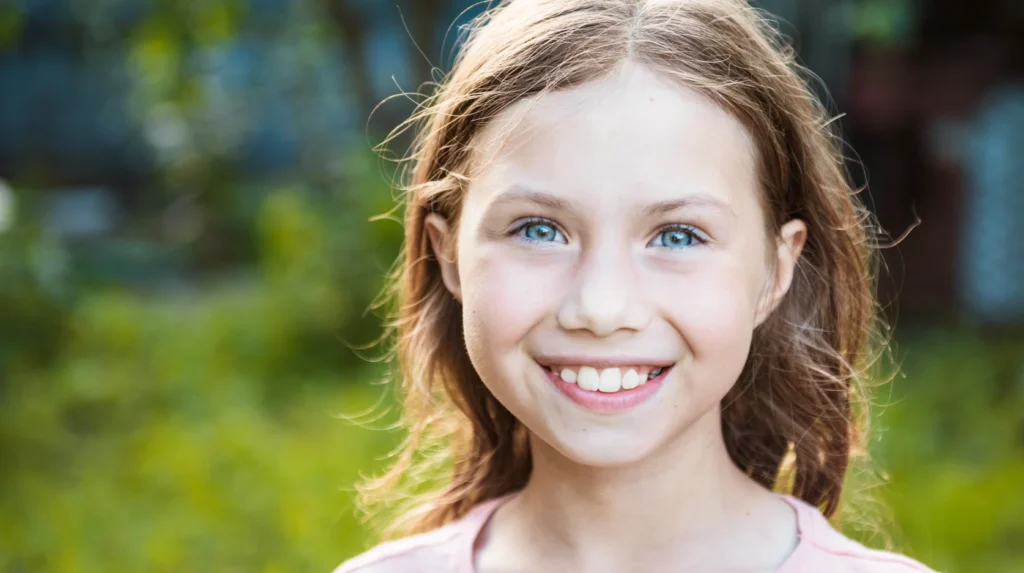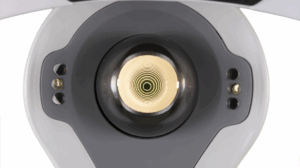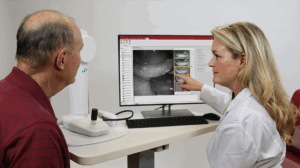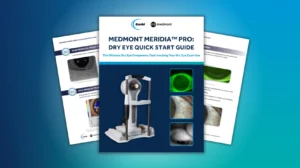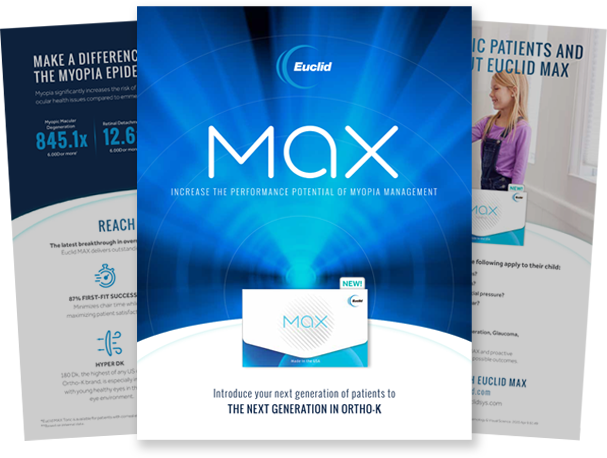Retrospective data review of Ortho-K use with children showed less axial length elongation, as well as successful long-term patient acceptance.
STERLING, Virginia, January 11, 2023 – A large US myopia study demonstrated the success of overnight orthokeratology (Ortho-K) using Euclid Emerald® and Euclid Emerald® Toric lenses in the management of pediatric myopia. Treehouse Eyes® conducted an independent analysis of their myopic treatments. The Clinical Algorithm for Myopia Progression (CAMP) study1 analyzed results from 342 myopic children who were treated and followed over a three-year period. The most prescribed modality was overnight Ortho-K, with 188 of the 342 children started in that modality, and Euclid designs were prescribed to 84% of the children who were prescribed Ortho-K.
Axial Length Elongation
Minimal axial length (AL) elongation (defined as less than or equal to 0.10 mm per year) was observed in 70% of patients wearing Euclid lenses at year 3.
- Minimal AL elongation was seen in 52%, 45%, and 70% of patients wearing Euclid Ortho-K lenses in years 1, 2 and 3, respectively, as compared to 50%, 40% and 50% of patients wearing other brand Ortho-K lenses. While Minimal AL elongation for the first two years between these two treatments is comparable, there is a significant improvement in minimal AL elongation experienced at year 3 follow-up visits with patients wearing Euclid Ortho-K lenses.
- The Cumulative Absolute Reduction in axial Elongation (CARE)2 value of patients treated with Euclid Ortho-K lenses at year 3 was 0.32 mm,3 showing similar reduction value to other non-Ortho-K modalities.4
Refractive Error Change
In this study, Ortho-K treatment showed greater reduction in the amount of myopic refractive error change (less than or equal to 0.25D per year) compared to the other treatment options, although, refractive error may be a less reliable indicator for Ortho-K efficacy due to inherent distortions from the corneal reshaping process.
Treatment Continuity
The majority (78%) of the patients treated with Ortho-K lenses remained with this treatment modality throughout the study duration. In contrast, 68% of patients in multifocal soft contact lenses and 22% of patients prescribed atropine alone did not change treatment modality. The findings of this study suggested that Ortho-K provided a stable and effective treatment modality for parents and children throughout the study.
“My first-hand experience as a clinician using Euclid lenses has helped me provide a seamless Ortho-K experience and streamlined care for my patients. It is a game-changer in the space of pediatric myopia care,” said Kevin Chan, OD, MS, FAAO, Sr. Clinical Director, Treehouse Eyes.
“Euclid is most often my “go-to” lens company, as I believe I can trust their products and advice, from start to finish,” said Azinda Morrow, OD, FAAO, private practitioner in Santa Clara, CA.
This study demonstrates that Euclid Vision’s proprietary designs can result in successful management of myopia progression and strong patient acceptance.
References:
- THE-CAMP study – currently pending publication.
- Brennan NA, Toubouti YM, Cheng X, Bullimore MA. Efficacy in myopia control. Prog Retin Eye Res. Published online November 2020:100923. doi:10.1016/j.preteyeres.2020.100923
- CL Spectrum article pending publication – “A 3-year Real World Orthokeratology Perspective” by Azinda Morrow and Kevin Chan.
- Chamberlain P, Peixoto-de-Matos SC, Logan NS et al. A 3-year Randomized Clinical Trial of MiSight Lenses for Myopia Control. Optom Vis Sci 2019;96:556-567.
*Based on internal data
